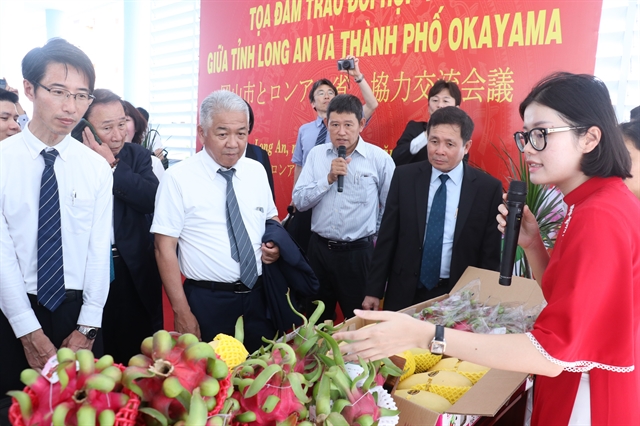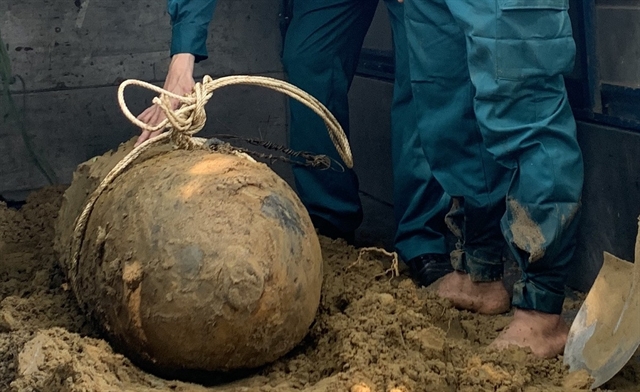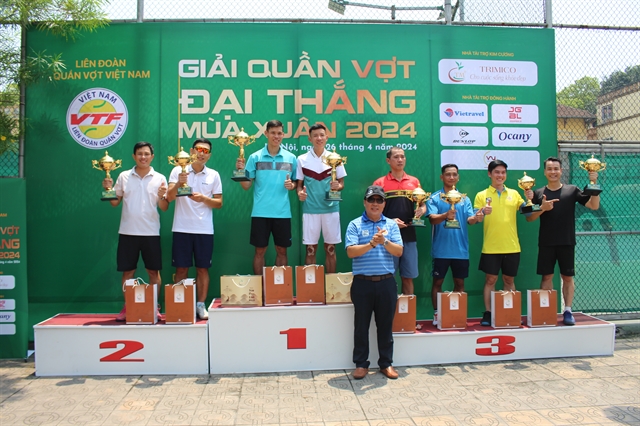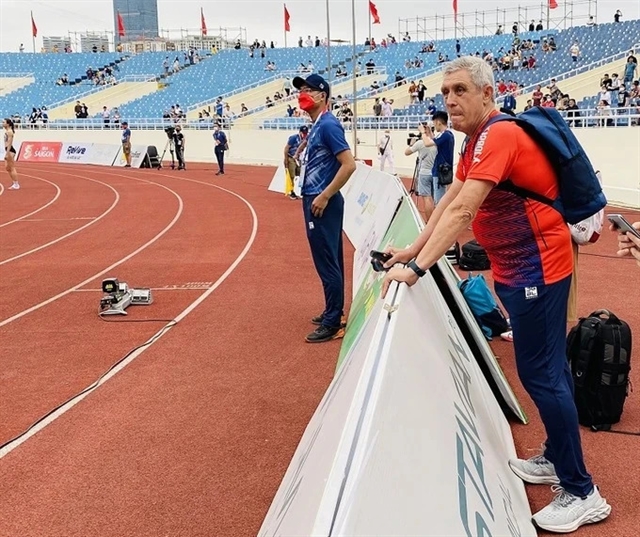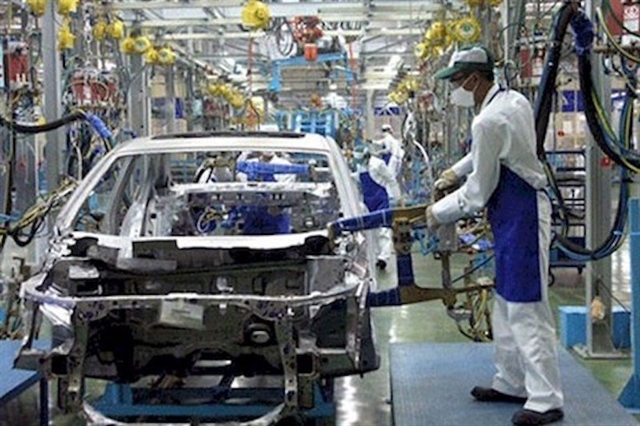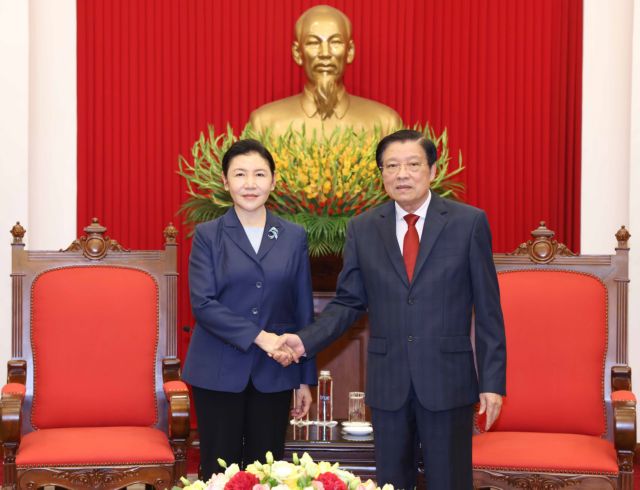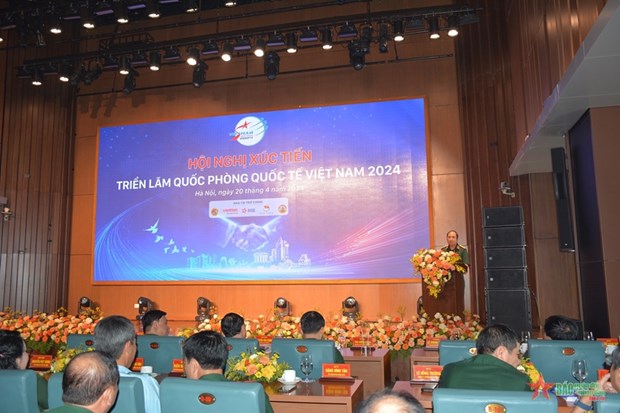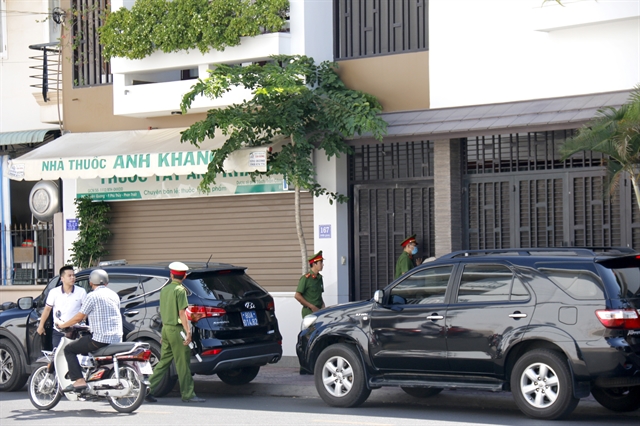 Society
Society

" />HCM City’s Food Safety Management Board, the first of its kind in the country, saw significant progress in its first 10 months of operation, according to Deputy Minister of Health Nguyễn Thanh Long.
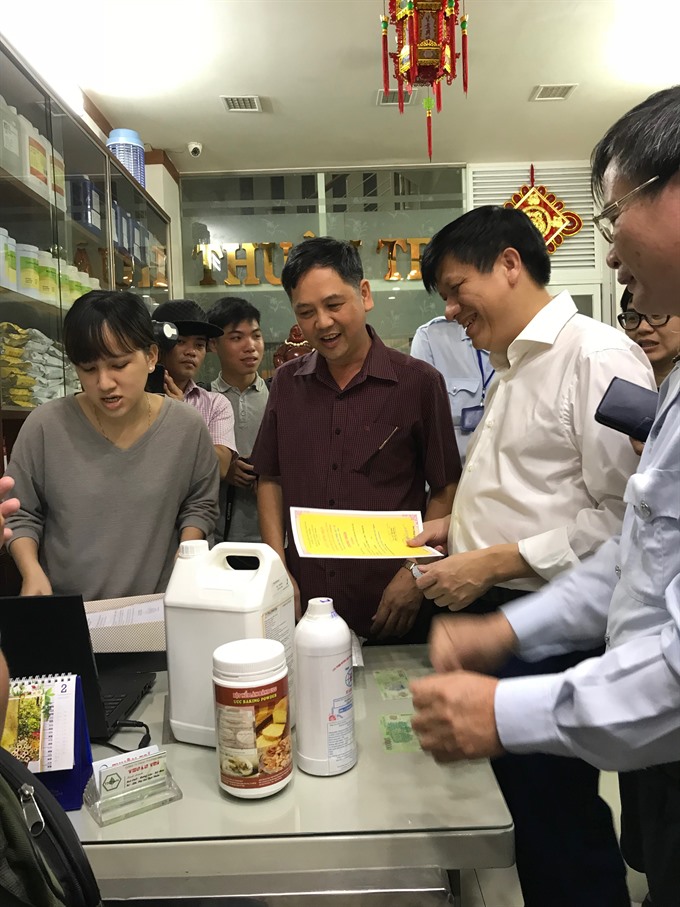 |
| Deputy Minister of Health Nguyễn Thanh Long checks chemicals and food additives sold at Kim Biên Market in HCM City. —VNS Photo Gia Lộc |
HCM CITY — HCM City’s Food Safety Management Board, the first of its kind in the country, saw significant progress in its first 10 months of operation, according to Deputy Minister of Health Nguyễn Thanh Long.
Speaking at a meeting in HCM City yesterday, Long said the board, for instance, worked with other provinces to set up food safety chains in an aim to have more safe food in local markets.
More food safety chains should be established in the country, he added.
Representatives from other provinces and cities plan to visit HCM City to learn more about the management board’s activities and set up their own food safety boards.
Long said the city’s food safety board should apply measures to reduce the amount of protective chemicals used on vegetables and fruits.
The board should also trace the origin of other food items besides pork and chicken, and strictly manage the use of food additives, he added.
Food safety at traditional markets should continue to be emphasised as well because many locals still prefer to shop at these places, Long noted.
Schools and companies that provide lunches should also receive more attention.
Phạm Khánh Phong Lan, the head of the food safety board, said the board was working with the city’s Department of Education and Training and HCM City Labour Federation to carry out projects.
Schools and companies that use cooked meals from food suppliers without licenses will be fined, Lan said.
The board’s staff, however, cannot impose fines on the spot because they do not have official inspection cards like other departments, according to Lan.
She said that fines for violations of food safety regulations should be raised and that more rapid tests should be provided to detect unsafe food in time.
Nguyễn Thanh Phong, head of the Việt Nam Food Administration under Ministry of Health, said the board would be allowed to buy as many rapid tests as necessary.
Bến Thành Market in District 1 has optimal conditions to pilot a programme to sell traceable foods at traditional markets, according to the HCM City Department of Industry and Trade.
Nguyễn Nguyên Phương, head of the department’s commercial management division, made the assessment after making a fact-finding trip to the market yesterday.
A similar programme has been successfully trialled to sell pork with traceable origins at modern trade outlets and two wholesale markets, he said.
To pilot the new project, “we decided to begin with pork products, and then expand to fruits, vegetables and other food items,” he said.
Bến Thành Market has 41 pork stalls, 36 of them run by Vissan Joint Stock Company, making the task of checking origins easy, he said. Vissan is part of the earlier programme.
But the remaining five stalls sometimes buy pork from different sources, he said.
“Therefore, we must work out inspection methods to ensure all pork sold in the market is traceable.
“We also checked the facilities at the market to come up with plans to improve its facilities.
“And finally we will check traders at the market for documentation (such as business licence and food safety certificate) as regulated under the project.”
Lê Quang Thiện, head of the Bến Thành Market management, said: “Consumers are deeply concerned about hygiene and food safety. This pilot project comes at the right time and allays consumers’ fears.”
The market management has provided merchants with information about the pilot project, and they wholeheartedly support it, he said.
Some facilities like water supply, drainage, lighting and electricity system, and flooring need to be upgraded to ensure safety and meet the project’s infrastructure criteria, he said.
Lưu Trung Hòa, deputy chairman of the District 1 People’s Committee, said the city should allocate money for repairing the market’s leaking roof and raising its floor.
After it is piloted, the programme is expected to be expanded to other markets in the city by 2020.
The Hóc Môn Wholesale Market, where the earlier programme to sell pork with traceable origin is also being trialled, will be the other market where the department will pilot the new programme after Tết (the Lunar New Year) in mid-February.
The programme is meant to reassure consumers that goods sold at traditional markets are also carefully monitored and make them feel secure when buying there. — VNS
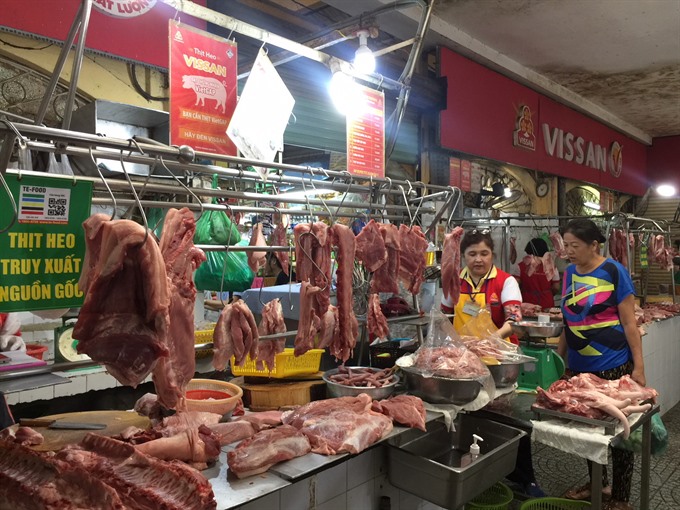 |
| A stall selling pork at Bến Thành Market in District 1, HCM City. — VNS Photo |

